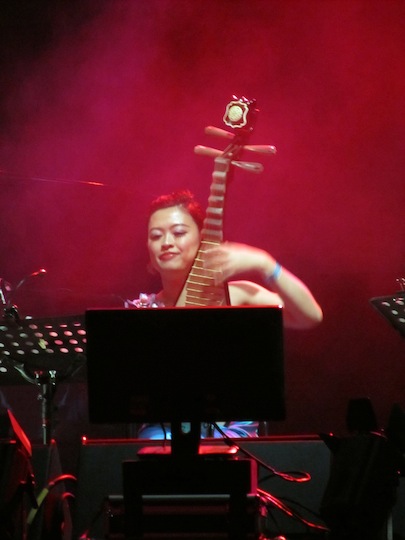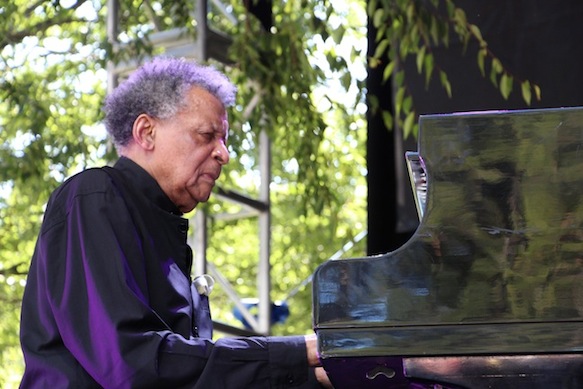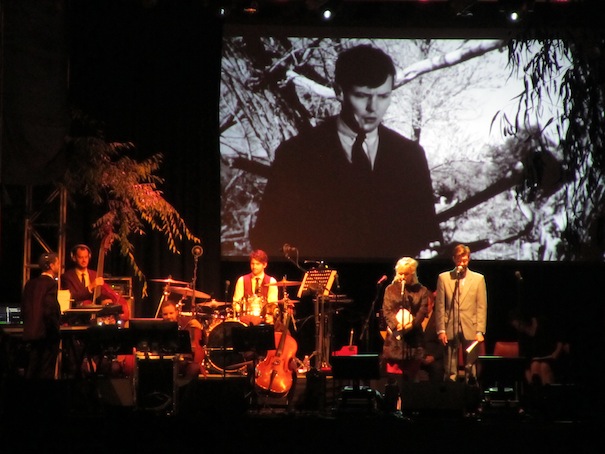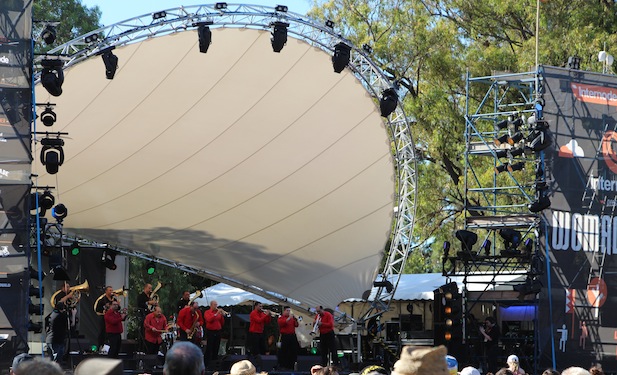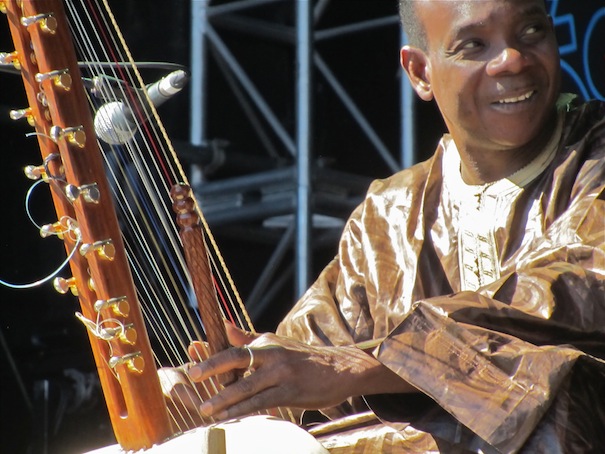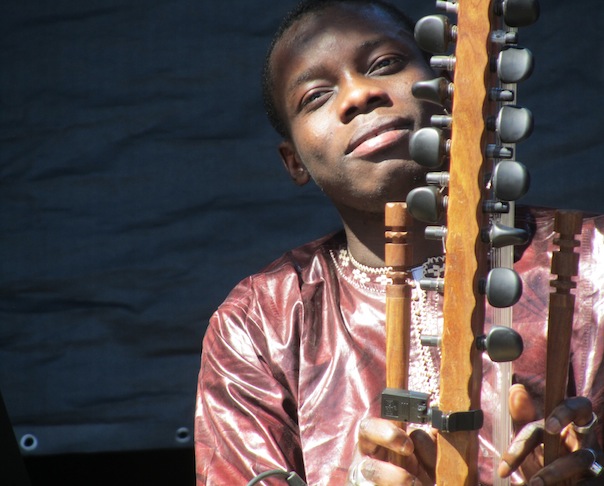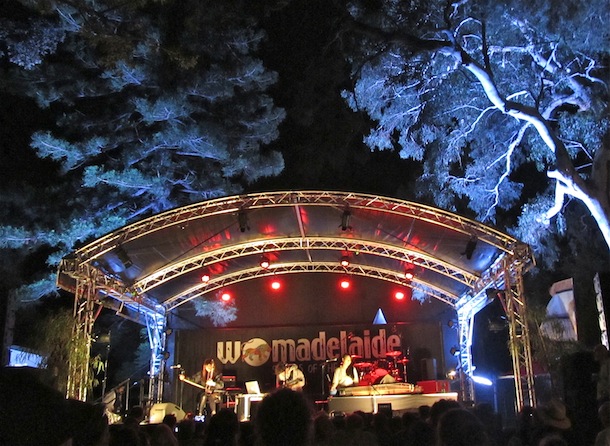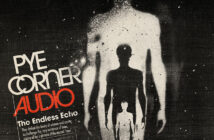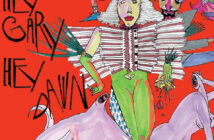By March, the usually sleepy city of churches comes alive with the Fringe Festival, The Writers Festival, The Adelaide Arts Festival, and even the Clipsal 500 if you’re of a revving persuasion. But one of the most unique musical treats occurs under the grand trees of Adelaide’s botanical gardens, where during numerous performances you can hear monkeys yammering, bats squawking, and feel the reassuring texture of the grass and dirt beneath your feet. Womadelaide is a melting pot, offering unique, often ancient cultural sounds and philosophies from across the world for 4 days and nights of ecstatic exchange. This year, there were big headliners such as Sinead O’Connor, Neneh Cherry, Buena Vista Social Club and Youssou N’Dour, but with seven stages the possibilities are endless, and in effect there are multiple festivals here, offering you the opportunity to curate your own according to your taste. The rewards though tend to come from the more intimate performances on the smaller stages, and in particular, the workshops.
Stage 3, at the bottom of the gardens is an oasis away from the bluster of the main stages, with it’s gentle sloping hill and mammoth pines, you can sink into the grass where even on the warmest days the music just drifts across the space with the breeze. It’s a stage that keeps on giving, in particular the two performances of South African jazz legend Abdullah Ibrahim’s minimal, gentle, simple and timeless take on jazz. It is so rare for an artist of his acclaim, stature and age to have so little ego. Everything was in slave to the music; there were no flourishes, no bombast just deft stylish music without fanfare. When he finished he let us down so gently, the notes ringing out into the ether, though they were quickly drowned out by the standing ovation on both days. At 80 years old he is still a major force.
Stage 3 also hosted Bolivian folk singer Luzmila Carpio, whose relatively innocuous folk music from the Andes, vaguely reminiscent of nursery rhymes or even children’s music were augmented by the most delicate of instrumentation. What made her music so striking however was that these tunes would periodically be punctuated by some of the most amazing vocalisations, where it felt like she had been taken over by birds or other wild creatures. It almost felt like some kind of possession, so convincing were her sounds, where abruptly her vocals would shift and she would become a wild animal. She’s been labelled the ‘singing violin,’ but she is so much more, and whilst it all felt slightly ridiculous as the audience just looked up at her with total bewilderment, her set was entirely earnest and a true highlight of the festival.
At night this stage continued to provide a bounty of riches, such as the endlessly engaging Live Live Cinema, with all sounds created live on stage, not just the Gialloesque music for Francis Ford Copolla’s Dementia 13, but the dialogue and even the Foley. They did this two nights in a row, the first being the horror classic Carnival of Souls. The following night, stage three drifted towards the avant garde, with the Australian/ China ensemble Typhoon, featuring Brian Ritchie (Violent Femmes) on shakuhachi, pianist Michael Kieran Harvey and Chinese nationals Xie Yu on Pipa and Ma Jia Jun on Erhu as well as animations from Zeng Yi Gang. Performing new music compositions as well as ancient classical tunes, there was a certain peace and tranquillity in their playing as they took an experimental approach to their ancient instruments.
Womadelaide though, also had its fair share of bluster, such as Niger guitarist Bombino who was initially disappointing on the larger, much sunnier stage 2 during the day, suitably rocking out, but you got the sense that his humbleness caused him to have his guitar subsumed in the mix. It was a shame because you don’t want to have to lip read a Tuareg guitar solo. A few days later on stage 7, in a much more intimate performance, the guitar felt a little louder and he really rocked out, showing just what he could be capable of. But still, he could use some more volume, to better showcase his skills.
Then there’s the inevitable swagger, such as Israel/ USA electronic outfit The Balkan Beat Box who tore up stage 1 with funky breaks, Balkan brass and charisma overload. It was a heady mix and impossible not to get swept up in their hyper energetic enthusiasm. Later in the Taste The World cooking tent front man Tomer Yosef confessed that he used to be a comedian. Really? You could never guess. Similarly the band who actually come from the Balkans, Romania’s Fanfare Ciocarlia, some of the most over confident middle aged men you will ever encounter, absolutely blasted Womadelaide with their torrents of unrelenting brass. With two rows of brass and percussion they demonstrated that the strut is more than okay if you can back it up. A particular highlight was their take on Born to Be Wild, which would segue into a very strange Daffy Duck on red cordial tangent. “You are wow,” they screamed. They were right. We were. Then we needed to lie down.
As the days merged into nights we caught glimpses of strange new worlds, like the plinking and plonking of John Cage mentored avant garde musician Margaret Leng Tan’s toy pianos, or the sparse desert landscape of central Australia’s Tinjutu Desert Band. Part outback reggae part pub rock there was even a faint sweat stained scent of Cold Chisel hidden within their repertoire. Yet that wasn’t their only surprise, later covering The Surfaris iconic surf hit Wipe-Out, which if you think about it, in their hands has now become a desert surf classic.
Perhaps it was sheer overload, but over time, we began to seek out the softer moments, the more stately and traditional, like the music of Palestinian Ramzi Aburedwan, which felt like nourishment for the soul. “Birds are a symbol of freedom because they cross borders with ease,” he offered before talking about how as a child he and the other kids would throw rocks at the cars of Israeli settlers. Now he funds music schools in Palestine to give the children something to aspire to. Iranian Tara Tiba’s traditional Persian music, updated with contemporary elements like sax, double bass, percussion and guitar, gave her music a light jazz swing, turning traditional devotional music into almost torch songs and was perfectly soothing in the mid afternoon breeze.
One of the major festival performances was Mali’s kora legend Tounami Diabate with his son Sidiki. Whilst it began with a solo piece from Sidiki, everything changed the moment Tounami arrived on stage. There was a palpable sense of joy radiating off the duo. You could see the glee on Sidiki’s face as Tounami pulled off some particularly intricate playing, and their interplay, not just musically, but even in their body language was fascinating. Musically it was remarkable, just soaring across the gardens, these two endlessly lyrical African harps weaving in and out of each other, one moment working together, the next call and response, an ancient, though timeless dance reminding us that we’re experiencing the culmination of 71 generation of kora players from this extraordinary family. When Sidiki produced a wah wah pedal during the final piece it demonstrated that this generation still has a few tricks up its sleeve. Without doubt they presented two of the most essential performances at the festival
The biggest surprise came from the youngest participants. The members of South Korea’s Jambanai met whilst studying traditional South Korean music. In a Taste The World performance where they confessed that the most they ever cooked was instant noodles, they said that in South Korea everyone considers this old persons music. But what happens if you mix Slayer with these sounds? Equally informed by metal and post rock, Jambanai have the capacity to build and explode songs into giant crescendos of noise. They’re the Dirty Three without the spitting, Mogwai with one foot immersed in folklore. Their final performance deep on Monday night was electric. With most of the audience seated, a number of metal dancers congregated at the front, banging heads and thrusting a metal salute. This caused some degree of consternation with those behind, but it’s the perfect description of both the sound and world clash that is Jambanai. Finally Jambanai told us it was their last song and they wanted everyone on their feet and truly rocked out. Afterwards it was pandemonium. In six years of covering Womadelaide I’ve never seen anything like this, the audience baying for more, drowning out the MC who came on to thank the sponsors – refusing to let her get a word in. It was unrelenting and freeing, the most powerful and awe inspiring performance of the festival also being the last. Find these guys.
With the new age cult like Artonik: Colour Project who performed odd mandala rituals to endlessly repetitive riffing before dousing themselves and the audience in coloured corn starch, to Youssou N’Dour and Neneh Cherry having their Kenny and Dolly moment singing Seven Seconds, to the Exxopolis, a remarkable inflated sculpture that you loose yourself in like some kind of Jodorowsky Disney psychedelic trip, Womadelaide 2015 delivered in both innovation and weirdness.
The one criticism would be the reduction in workshops, making way for the Planet Talks series with academics and scientists. Whilst it’s hard to dispute the value of these discussions, the workshops provide such an intimate entry into the world of the artist and foster such a unique and unexpected cultural exchange, that there has to be scope to maintain these incredibly valuable experiences. But it’s a minor quibble in the four days and nights celebrating musical expression in all its bizarre misshapen and beautiful cultural forms. There are no words to express just what an overwhelming abundance of gifts Womadelaide has once again bestowed upon us this year.
Photos by Carla Martins and Bob Baker Fish

